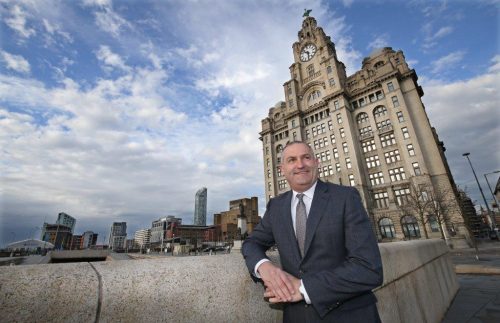Cheshire East has North West’s best performing economy

Cheshire East has emerged as the top performer across all 39 local authorities in the North West, according to a new study examining social and economic performance.
Business advisory group Grant Thornton has ranked all 324 English local authority areas against six socio-economic objectives, going beyond GDP to provide a holistic view of strengths and areas of opportunity.
The study measures key indicators and awards an overall ‘vibrancy’ score, with 100 being the national average.
Cheshire East is the highest performer in the North West, leading the way on a series of economic metrics for prosperity, dynamism and opportunity.
It is also well placed nationally across a range of indicators around communities, including resilience, sustainability, inclusion and equality.
Cheshire West also scored well, in third position in the North West behind Trafford, and just ahead of Warrington and South Lakeland.
The study reveals a sharply contrasting picture of life within the North West’s two largest cities, as both scored highly for their economic dynamism, but poorly for health and happiness.
Manchester made it into the top 20% in the country for prosperity, dynamism and opportunity, but in the bottom 20% nationwide for inclusion, equality, health, happiness and wellbeing.
Liverpool mirrored this polarised portrait of the cities – it ranks in the top 20% nationally for dynamism and opportunity, but also scored poorly for inclusion, equality, health, wellbeing and happiness, ranking in the bottom 20%.
For the fifth year in a row Cambridge topped the poll as England’s most vibrant place to live.
At the other end of the spectrum, Blackpool produced the lowest set of figures and was positioned in 324rd place.
It ranked in the bottom 20% nationally in five out of six social and economic baskets measured by the report.
Mike Thomas, a senior audit director at Grant Thornton in the North West, said: “We’ve created the Index to spark a debate on what type of economy we want in the UK.
“The figures do evidence the challenges and how high the bar is on regeneration in cities.
“Manchester, for example, has higher than average prosperity (105.87) and dynamism (104.68) but a very low inclusion score (88.87).
“This low score is driven by low employment rates, high levels of homelessness and child poverty, as well as a high proportion (13.8%) of the working
age population claiming benefits.
“Manchester and Liverpool are places of conflicting dynamics, where strong leadership, cultural growth and a proud local identity coexist with the realities of public sector austerity, pockets of deprivation and political disengagement.
“There is an important debate to be had about how well a top-down approach is working in terms of creating sustainable communities in our metropolitan areas.
“A vibrant economy would see more people benefiting from economic growth.”
He added: “Cheshire’s resurgence is based on a growing excellence in many key economic areas such as automotive, bio-technology, chemical, financial services, food and drink, and tourism.
“But it’s also making strides in other ways. The vibrancy of any local place is about so much more than GDP.
“From soup kitchens to social enterprises, riverside clean-ups to responsible lending, green recycling schemes to growth generation through Local Enterprise Partnerships – real vibrancy is the result of collaboration between people and public, private and third sector organisations.”







